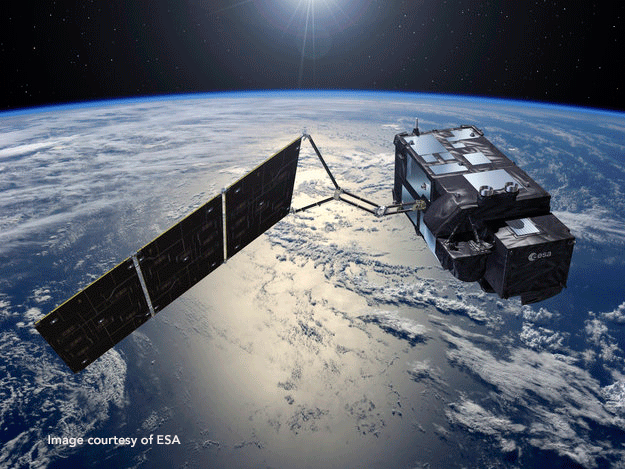The European Commission announces the NEXTSPACE results

After four years of work, the NEXTSPACE framework contract, led by GMV together with the Belgian firm SpaceTec Partners and the French companies FDC (France Développement Conseil) and Noveltis, takes another firm stride towards fulfilment its objective of pinpointing the necessary developments for Europe’s long-term space infrastructure.
NEXTSPACE kicked off back in 2014 with the remit of collating user expectations for the future satellite generation of the Copernicus Programme, thus providing the necessary feedback for planning development of the Copernicus Space Component as from 2030, i.e., development of current Copernicus satellites and definition of the next generations.
As a result the European Commission has now published a list of over 4000 technical requirements, compiled from European organizations and users from different domains and sectors, to help in definition of the next generation of earth-observation satellites and their derivative services. The databases can be checked out in the Copernicus Programme Document Library.
NEXTSPACE activities include transformation of user needs into satellite observation requirements and prioritization of the latter according to their social and economic impacts and effect on EU policies. Under the contract an in-depth analysis will also be made of the characteristics of current and future space missions to determine how to respond to the demand of observation requirements.
The Copernicus earth-observation program got underway in 1998 during a meeting held in Baveno (Italy) between the main players of Europe’s space sector. It was enshrined in the Baveno Manifesto signed by ESA, EUMETSAT and representatives of the French, British, German and Italian space agencies. The Baveno Manifesto marked the birth of the Global Monitoring for Environment and Security (GMES) program, which changed its name to Copernicus in 2011.
Last May saw the 20th anniversary of the Baveno Manifesto, which paved the way for Europe's earth-observation program. To celebrate this anniversary the European Commission organized a commemorative event in Baveno on 20 and 21 June last, which included the official launch of the Copernicus Data and Information Access Services (DIAS), to facilitate access to satellite services and Copernicus services.